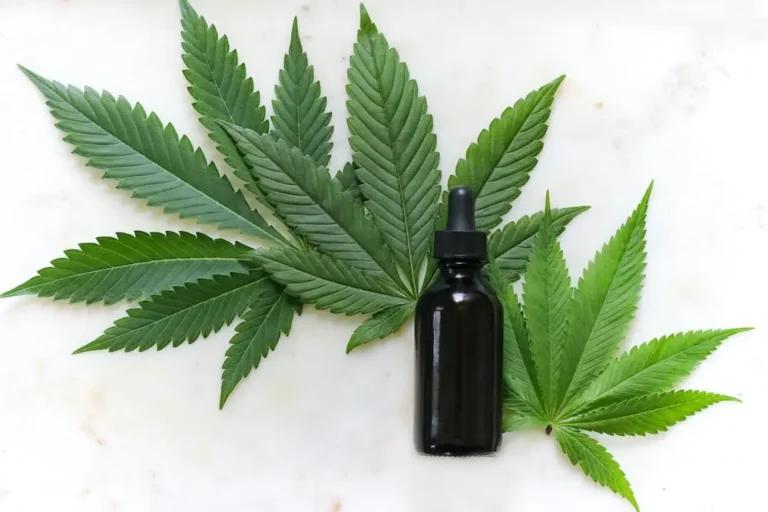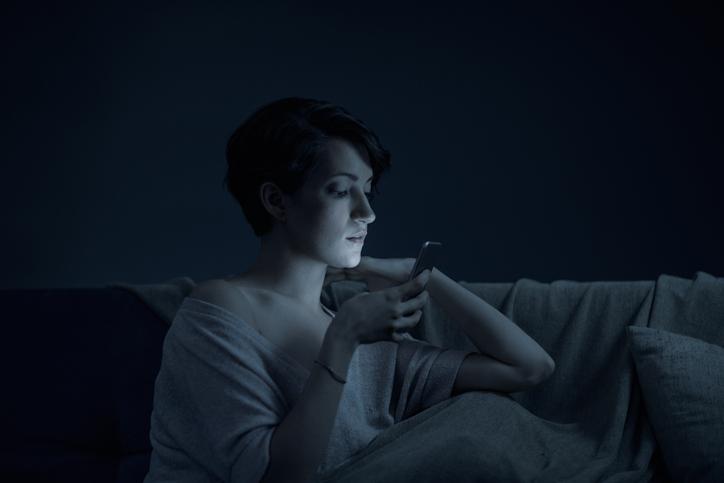Are you struggling to get a good night’s sleep? Have you tried various sleep aids such as chamomile, valerian root and melatonin without success? If so, you’re not alone. Many people suffer from sleep disturbances and turn to different remedies to improve their sleep quality. One option that has gained significant attention in recent years is CBD oil for sleep, a compound found in the cannabis plant. There’s growing interest in it’s health benefits.
In this comprehensive guide, we will explore the potential benefits of CBD for sleep and provide you with all the information you need to make an informed decision about incorporating CBD use into your sleep routine.
Introduction to CBD for sleep
Sleep plays a crucial role in our overall health and well-being. It helps us recover from the day’s activities, rejuvenate our bodies, and consolidate memories. However, millions of people struggle with various sleep issues, such as insomnia, sleep apnea, and restless leg syndrome, which can have a significant impact on their daily lives. Traditional sleep aids often come with unwanted side effects and can be habit-forming, leading many individuals to seek alternative solutions.
One such alternative that has gained popularity in recent years is CBD, short for cannabidiol. CBD is a non-intoxicating compound found in the cannabis plant, known for its potential therapeutic properties. Unlike its counterpart, THC (tetrahydrocannabinol), CBD does not produce a “high” and is generally well-tolerated by most individuals. As a result, many people are turning to CBD as a natural remedy for sleep disturbances.
Understanding sleep disorders
Before delving into the potential benefits of CBD for sleep, it’s essential to understand the different types of sleep problems that individuals may experience. Here are some of the most common sleep disorders:
Insomnia
Insomnia is a sleep disorder characterized by difficulty falling asleep, staying asleep, or experiencing non-restorative sleep. It can be caused by various factors, including stress, anxiety, depression, medications, and underlying health conditions. Chronic insomnia can significantly impact one’s quality of life, leading to daytime fatigue, irritability, and difficulty concentrating.
Sleep apnea
Sleep apnea is a sleep disorder characterized by pauses in breathing or shallow breaths during sleep. These pauses can occur multiple times throughout the night, leading to fragmented sleep and daytime sleepiness. Obstructive sleep apnea, the most common type, occurs when the airway becomes blocked, often due to relaxed throat muscles.
Restless leg syndrome (RLS)
Restless leg syndrome is a neurological disorder characterized by uncomfortable sensations in the legs, typically occurring at night. Individuals with RLS often experience an irresistible urge to move their legs to alleviate the discomfort, making it challenging to fall asleep and stay asleep.
The science behind CBD
To understand how CBD may benefit sleep, it’s important to explore the science behind its effects on the body. The main cannabinoids are THC and CBD (cannabidiol). CBD interacts with the endocannabinoid system (ECS), a complex network of receptors and neurotransmitters found throughout the body. The ECS plays a crucial role in regulating various bodily functions, including sleep, mood, pain perception, and immune response.
CBD interacts with the ECS by binding to receptors known as CB1 and CB2 receptors. CB1 receptors are primarily found in the brain and central nervous system, while CB2 receptors are predominantly located in immune cells. By modulating the activity of these receptors, CBD may have a balancing effect on the body’s physiological processes, potentially promoting better sleep.
How CBD can aid sleep
While the exact mechanisms by which CBD promotes sleep are still being studied, several potential ways have been proposed. Here are some of the ways in which CBD may aid sleep:
Anxiety and stress reduction
Anxiety and stress are common culprits of poor sleep quality. CBD has been shown to have potential anxiolytic (anti-anxiety) and stress-reducing effects. It interacts with serotonin receptors, which play a role in mood regulation and may help reduce anxiety and promote a sense of calmness, making it easier to fall asleep and stay asleep.
Pain relief
Chronic pain can significantly disrupt sleep, making it difficult to find a comfortable position and stay asleep throughout the night. CBD has been studied for its potential analgesic (pain-relieving) properties. It may help alleviate pain by interacting with receptors involved in pain perception and inflammation, potentially leading to improved sleep quality.
Sleep-wake cycle regulation
CBD may also influence the sleep-wake cycle, also known as the circadian rhythm. The circadian rhythm is a natural, internal process that regulates our sleep-wake cycle over a 24-hour period. Disruptions to this rhythm, such as jet lag or shift work, can lead to sleep disturbances. CBD may help regulate the circadian rhythm by interacting with receptors involved in sleep regulation, potentially promoting a more balanced sleep-wake cycle.
Choosing the right CBD product for sleep
When considering CBD for sleep, it’s important to choose the right product that suits your needs. Various forms of CBD are available, including oils, capsules, gummies, edibles, topicals, and more. Here are some factors to consider when selecting a CBD product for sleep:
Potency and dosage
The potency of CBD products can vary widely, so it’s important to consider the concentration of CBD in each product. Additionally, finding the right dosage is crucial for achieving the desired effects. It’s recommended to start with a low dose and gradually increase it until you find the optimal dosage that works for you. Studies have shown that different doses of CBD can have different effects on REM sleep.
Full-spectrum vs. Isolate
CBD products can be classified as full-spectrum, broad-spectrum, or CBD isolate. Full-spectrum CBD contains all the natural compounds found in the cannabis plant, including THC (although in trace amounts). Broad-spectrum CBD contains all the compounds except THC, while CBD isolate is pure CBD. Some individuals prefer full-spectrum CBD for the potential synergistic effects of all the plant compounds, while others may opt for isolate if they want to avoid THC entirely.
Third-party testing
To ensure the quality and safety of CBD products, look for brands that conduct third-party testing. Third-party lab tests verify the potency and purity of the CBD, ensuring that it is free from contaminants such as pesticides, heavy metals, and residual solvents.
CBD dosage and administration
Finding the best CBD dosage for sleep can be a trial-and-error process, as it can vary depending on individual factors such as body weight, metabolism, and desired effects. It’s generally recommended to start with a low dose and gradually increase it until you achieve the desired results. Keeping a sleep journal can be helpful in tracking the effects of different dosages.
CBD can be administered in various ways, including oral ingestion, sublingual administration, inhalation, and topical application. Each method has its own advantages and considerations. Oral ingestion, such as CBD capsules or edibles like CBD gummies, provides a convenient and discreet option, while sublingual administration, using CBD tinctures or oils, allows for faster absorption into the bloodstream. Inhalation, through vaping or smoking CBD flower, offers quick onset effects but may not be suitable for everyone. Topical CBD products, such as creams or lotions, can be applied directly to specific areas of the body for localized relief.
Potential side effects of CBD
CBD is generally well-tolerated by most individuals, but it can cause side effects in some cases. Common side effects may include dry mouth, drowsiness, changes in appetite, and diarrhea. It’s important to note that CBD can interact with certain medications, so it’s recommended to consult with a healthcare professional before incorporating CBD into your sleep routine, especially if you are taking any medications, supplements or have underlying health conditions.
Research and studies on CBD for sleep
While scientific research on CBD for sleep is still in its early stages, several studies and anecdotal reports have shown promising results. For example, a study published in The Permanente Journal involving a large retrospective case series observed that CBD treatment led to reduced anxiety scores and improved sleep in 79.2% and 66.7% of the participants, respectively. However, more controlled clinical studies are needed to further understand the potential benefits of CBD for sleep.
User experiences and testimonials
In addition to research studies, many individuals have shared their personal experiences and testimonials about using CBD for sleep. These firsthand accounts provide valuable insights into the potential benefits of CBD and how it has helped individuals improve their sleep quality. However, it’s important to remember that individual experiences can vary, and what works for one person may not work for another.
Conclusion
In conclusion, CBD shows promise as a natural remedy for sleep disturbances. Its potential anxiolytic, pain-relieving, and sleep-regulating effects make it an attractive option for those seeking alternative solutions for sleep disorders. However, it’s important to remember that CBD is not a magical cure-all, and individual results may vary. If you’re considering using CBD for sleep, it’s recommended to consult with a healthcare professional to determine the right dosage and product for your specific needs. Currently, the Food and Drug Administration (FDA) doesn’t guarantee the safety, effectiveness, or quality of over-the-counter (OTC) CBD products.
By incorporating CBD into your sleep routine, you may discover the potential benefits of this natural compound and finally experience the restful sleep you deserve.
Remember, quality sleep is crucial to both your physical and mental health, so if you’re struggling with sleep disturbances, it’s worth exploring CBD as a potential solution. With further research and clinical studies, the true potential of CBD for sleep may become even clearer in the future.
Sources
- Is Cannabidiol a Safe and Effective Sleep Aid? | Sleep Foundation
- Cannabidiol in Anxiety and Sleep: A Large Case Series – PMC
Medical Disclaimer
NowPatient has taken all reasonable steps to ensure that all material is factually accurate, complete, and current. However, the knowledge and experience of a qualified healthcare professional should always be sought after instead of using the information on this page. Before taking any drug, you should always speak to your doctor or another qualified healthcare provider.
The information provided here about medications is subject to change and is not meant to include all uses, precautions, warnings, directions, drug interactions, allergic reactions, or negative effects. The absence of warnings or other information for a particular medication does not imply that the medication or medication combination is appropriate for all patients or for all possible purposes.








